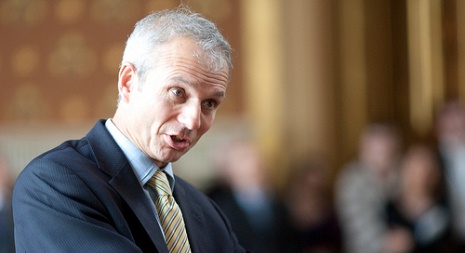While the ceasefire agreement brought an end to the fiercest fighting, real peace is yet to be achieved, he added.
Lidington pointed out that there are cases of violation of ceasefire between the conflicting parties.
"A humanitarian crisis continues as hundreds of thousands of displaced people still lack an adequate resolution to their plight. Peace will only be possible through compromises on both sides," the statement said.
The UK Minister for Europe underscored in this statement that the public diplomacy is the main factor in achieving peace and harmony.
"The UK supports the work of the OSCE Minsk Group co-chairs who continue to work hard to facilitate progress on the peace agreement," the statement said.
The elements making up a deal, including the return of occupied territories and the acceptance of a free expression of will on the status of Nagorno-Karabakh, were once again set out by the U.S. co-chair, James Warlick, the statement said.
The minister expressed hope in his statement that both leaderships will show the political courage to solve the conflict.
The conflict between the two South Caucasus countries began in 1988 when Armenia made territorial claims against Azerbaijan. As a result of the ensuing war, in 1992 Armenian armed forces occupied 20 percent of Azerbaijan, including the Nagorno-Karabakh region and seven surrounding districts.
The two countries signed a ceasefire agreement in 1994. The co-chairs of the OSCE Minsk Group, Russia, France and the U.S. are currently holding peace negotiations.
Armenia has not yet implemented the U.N. Security Council`s four resolutions on the liberation of the Nagorno-Karabakh and the surrounding regions.
More about:
















































